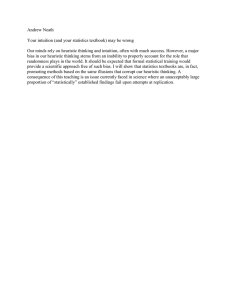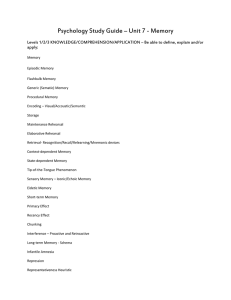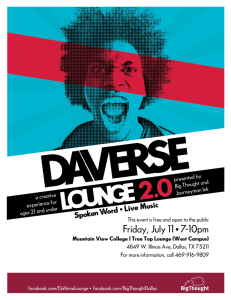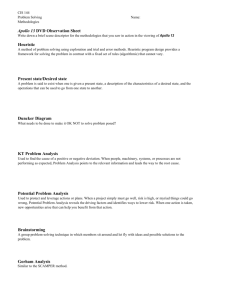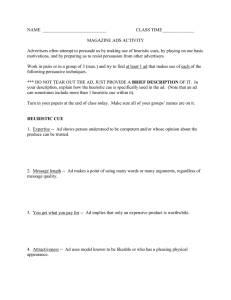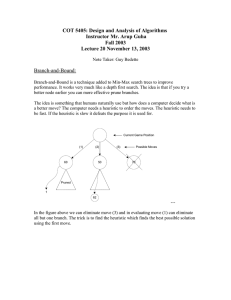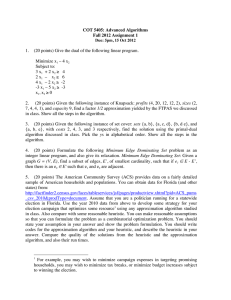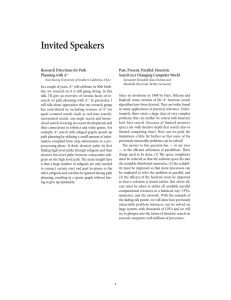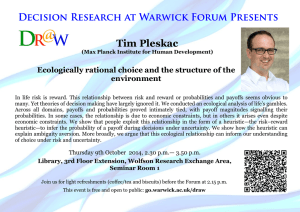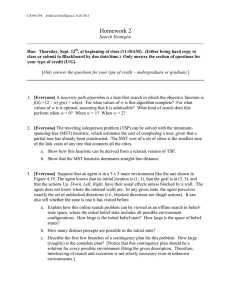DEFINING AND EXPLORING VIRTUAL REALITY: A BURKEIAN AND HEURISTIC ANALYSIS ABSTRACT ONLY
advertisement
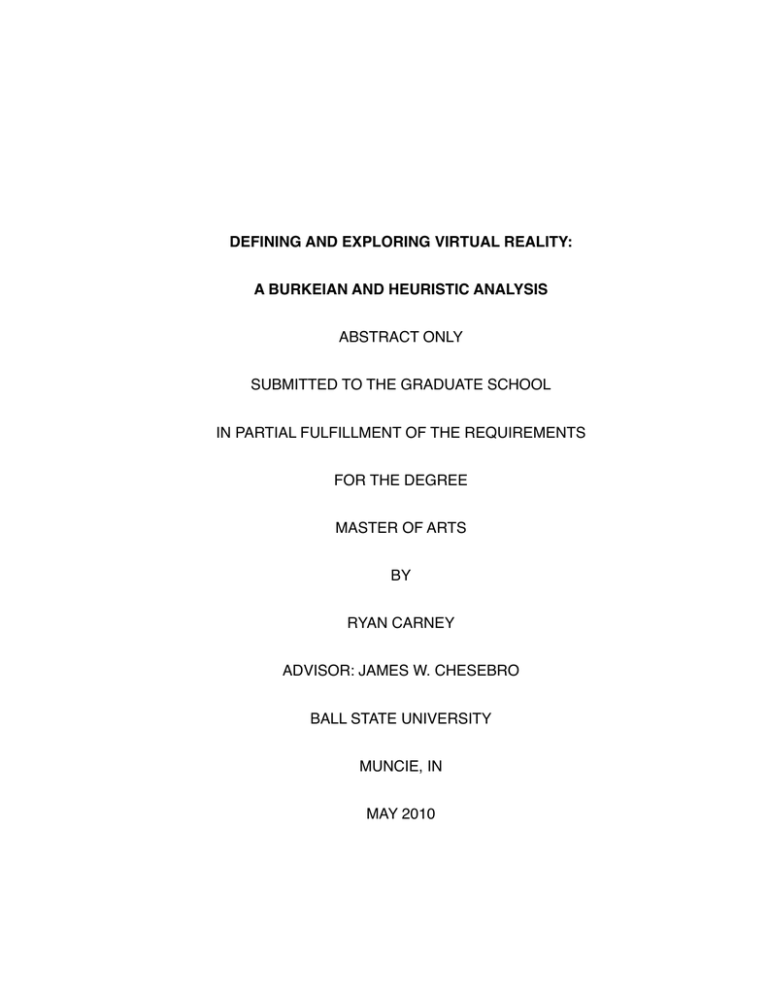
DEFINING AND EXPLORING VIRTUAL REALITY: A BURKEIAN AND HEURISTIC ANALYSIS ABSTRACT ONLY SUBMITTED TO THE GRADUATE SCHOOL IN PARTIAL FULFILLMENT OF THE REQUIREMENTS FOR THE DEGREE MASTER OF ARTS BY RYAN CARNEY ADVISOR: JAMES W. CHESEBRO BALL STATE UNIVERSITY MUNCIE, IN MAY 2010 Abstract ! Virtual reality has existed for many years, dating back to the 1940s but becoming popular on a larger scale in the late 1980s and early 1990s. It has been largely regarded as something of a plaything or hobby and, in general, as something that is on a lower echelon when compared to physical reality. In recent years, however, as our society becomes more interconnected via the Internet and as highly interactive web services, such as Facebook, Second Life, and Twitter, play a larger role in individualsʼ lives, a reexamination of the status of virtual reality becomes necessary. ! This study employs the work of a major twentieth century critic, Kenneth Burke, and from his conception of dramatism to demonstrate that 1) virtual reality, for many, is a significant reality that can often lead to the formation of meaningful relationships between individuals and 2) the significance of this reality is born out of users dramatizing their online experiences. Through heuristics and dramatistic analysis, I examine how the users of Facebook dramatize their actions and collectively contribute to the formation of a controlling narrative that can be seen across all of virtual reality. Further, the findings of this thesis provide a heuristic foundation for future research into virtual reality.
